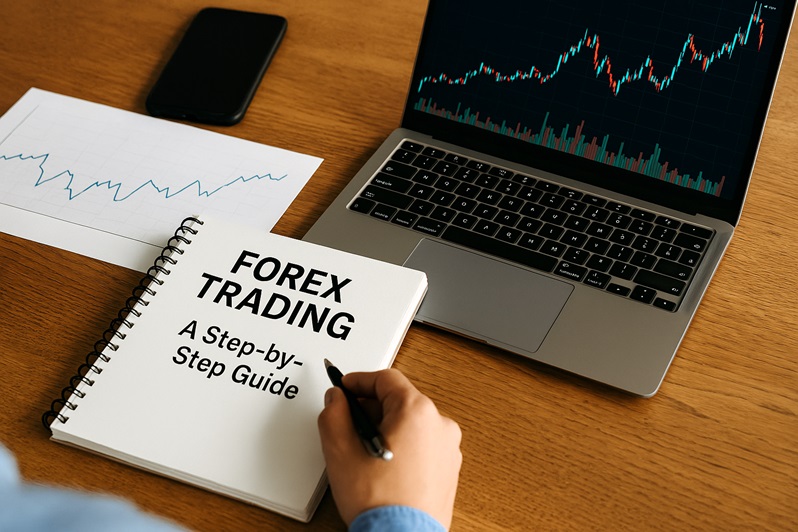
Entering the world of Forex trading can seem overwhelming at first. With its fast-paced dynamics, complex charts, and financial jargon, many beginners feel intimidated. But beneath the surface lies a powerful financial opportunity for those who approach it with knowledge and discipline. This step-by-step guide breaks down the essentials to help new traders build a solid foundation and start trading with confidence.
Understanding What Forex Trading Is
Forex, short for foreign exchange, refers to the global market where currencies are bought and sold. It’s the largest and most liquid financial market in the world, with over $6 trillion traded daily. Traders speculate on currency price movements, aiming to profit from fluctuations caused by economic events, political developments, and market sentiment.
Trading always involves two currencies—a base and a quote. For example, in EUR/USD, the euro is the base and the US dollar is the quote. If you believe the euro will rise against the dollar, you buy EUR/USD. If you expect it to fall, you sell. Understanding this fundamental structure is crucial before placing your first trade.
Setting Up to Trade: Accounts, Platforms, and Tools
Getting started begins with choosing a reputable broker that offers a secure trading platform and fair conditions. Look for regulation, low spreads, user-friendly interfaces, and access to learning resources. Most beginners start with a demo account to practice risk-free using virtual funds.
Popular platforms like MetaTrader 4 (MT4) or MetaTrader 5 (MT5) provide real-time price data, charting tools, and indicators. These tools help you analyze market trends and make informed decisions. As you gain experience, integrating trading plans, journals, and risk calculators will help enforce discipline and track your progress.
Learning to Read Charts and Develop Strategies
Technical analysis plays a major role in Forex trading. This involves interpreting price charts to identify patterns and trends. Beginners should start with basic chart types like candlestick charts and learn how to use support and resistance levels, trendlines, and indicators such as Moving Averages or RSI.
At the same time, understanding fundamental analysis is essential. Economic indicators like interest rates, employment figures, and GDP reports can influence currency movements. A strong strategy combines both technical and fundamental insights and is tailored to your risk profile and time availability.
Developing a strategy also means knowing when not to trade. Not every setup is worth pursuing. A patient, rules-based approach helps avoid emotional decisions and improves consistency over time.
Conclusion
Forex trading offers great potential, but success starts with education, structure, and a long-term mindset. As a beginner, your focus should be on building knowledge, managing risk, and gaining hands-on experience in a demo environment before transitioning to live trading. With the right foundation, you can approach the markets with clarity, confidence, and control. Ready to begin your trading journey? Start learning and stay disciplined—your future self will thank you.
FAQs
What is the minimum amount needed to start trading Forex?
Many brokers allow you to start with as little as $100, but starting with more gives better flexibility for risk management.
Is Forex trading risky for beginners?
Yes, like any investment, Forex carries risks. However, risk can be managed with proper education and tools.
Do I need to be online all day to trade?
No, you can trade part-time using strategies suited to your schedule, such as swing trading or position trading.
What are the best currency pairs for beginners?
Major pairs like EUR/USD, GBP/USD, and USD/JPY are recommended due to their liquidity and tighter spreads.
Can I make a living from Forex trading?
It’s possible, but it takes time, experience, and discipline. Most successful traders treat it like a business, not a hobby.
